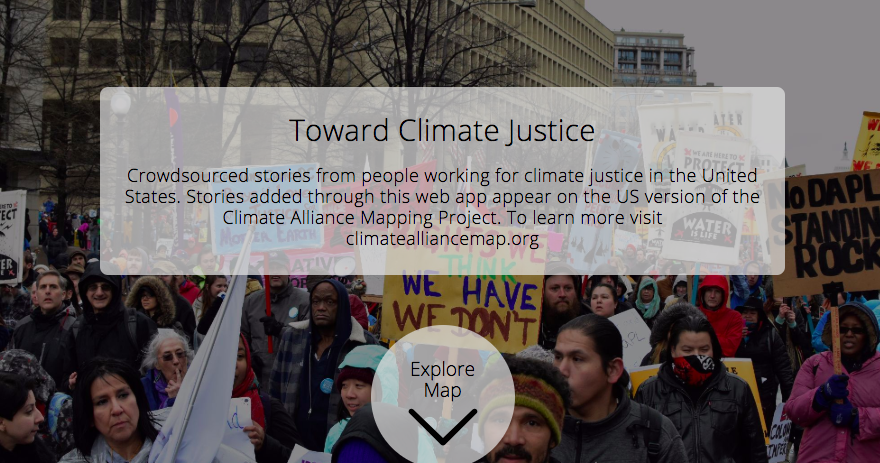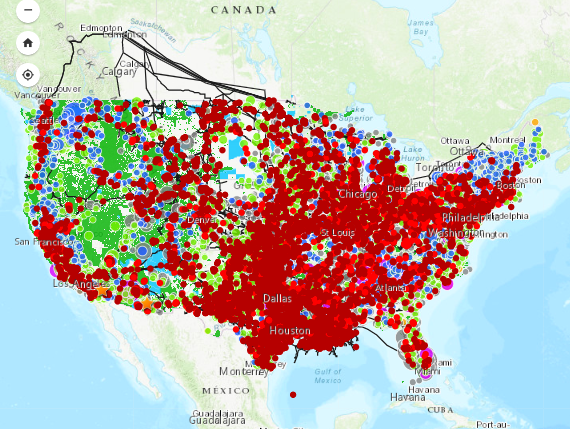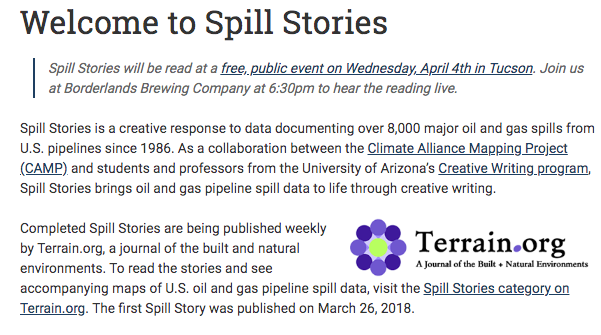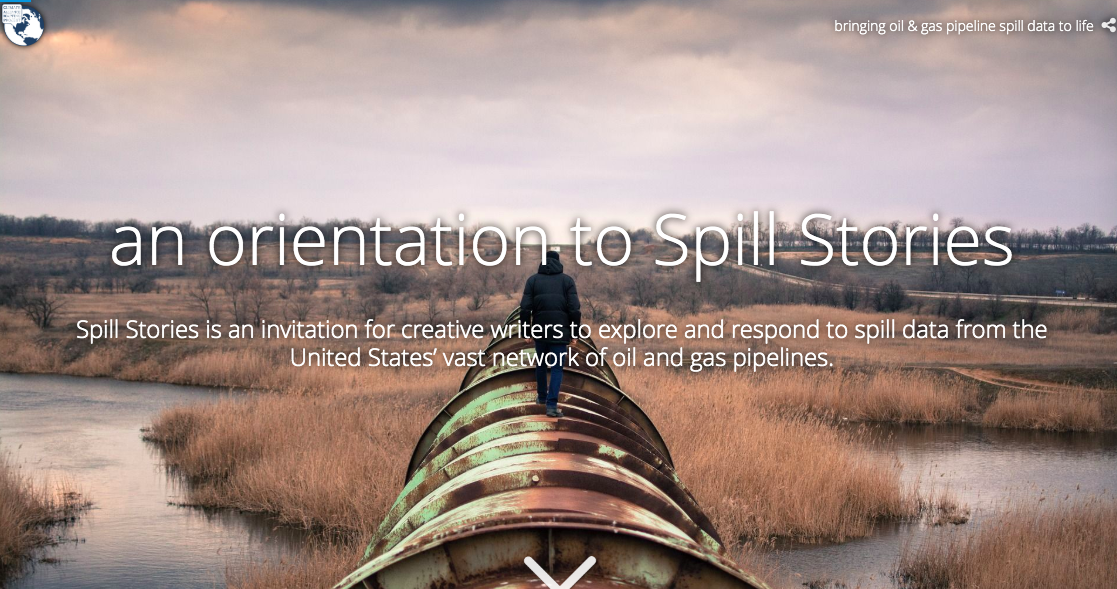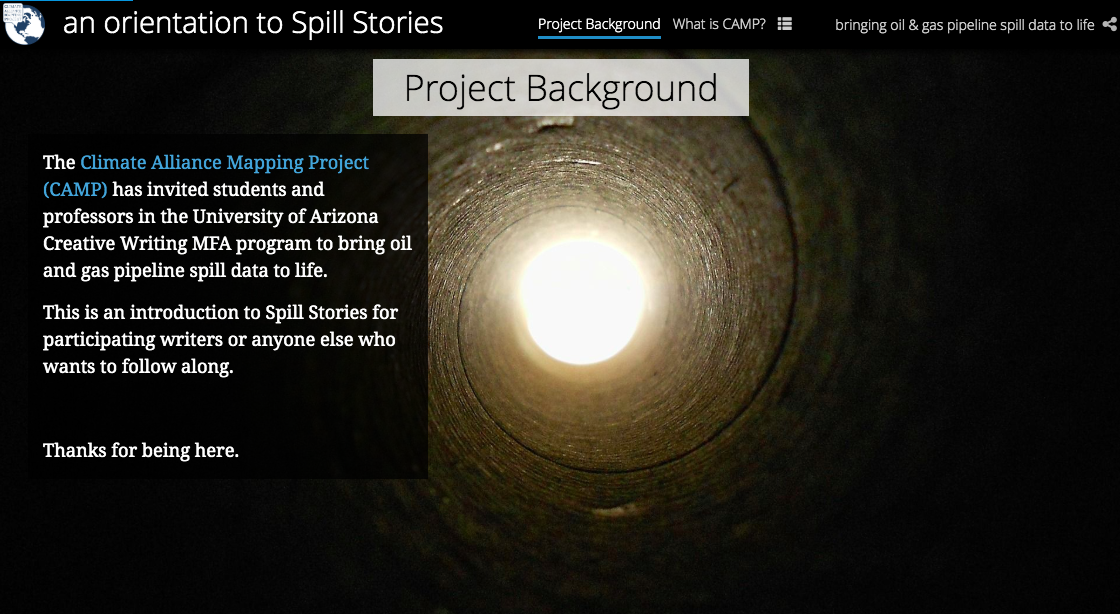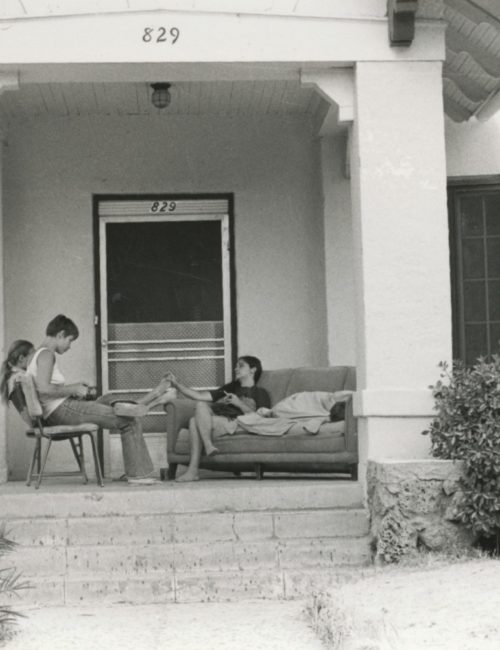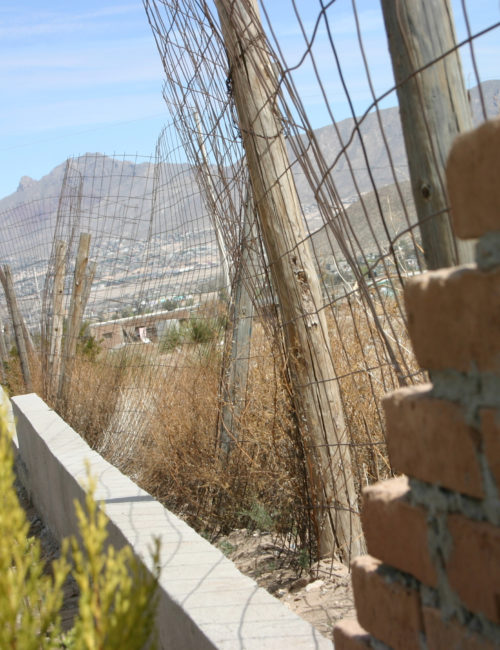Founded in 2015, the Climate Alliance Mapping Project, CAMP, is an ongoing storymapping project that brings together scientific data and digital stories produced by affected communities to educate the public, connect local communities with global climate justice networks, and inform policy decisions.
Visit https://climatealliancemap.org/
CAMP emerged from the understanding that roughly two-thirds of known fossil fuel reserves must remain in the ground to avoid the worst impacts of global climate change. The CAMP site shows the interactive layers of energy infrastructure that elucidates the interconnectedness throughout the Americas. Shifting discourse and political efforts invisibilize ongoing and emerging energy structures. For example, the current US administration has removed references to climate change from its governmental websites and is reversing environmental protection policies put into place over the past thirty years. Mapping projects related to fossil fuel reserves often emphasize the economic factors of exploration and exploitation, but rarely do the voices and perspectives of peoples and communities who live in such regions most affected get attention. These realities make our research team’s work to map connections of stories, storytellers, and energy data even more urgent.
With participation from the Schools of Information and Geography & Development at the University of Arizona, Amazon Watch and Sierra Club initiated this ‘Americas-wide initiative to advance climate equity’ and identified mapping as a key strategy. With funding from the Switzer Foundation, CAMP was launched in August 2015 to create digital and interactive maps. As the web-based mapping project was officially launched in May 2016, the maps have been initially used by Amazon Watch and Sierra Club with over 50 Indigenous and environmental organizations. CAMP continued to expand through the development of Digital Storytelling Protocols and US storytelling and mapping capacity. Calls for digital story submissions are circulating. Through the research team’s participation at the Uplift Conference, United Nations Conferences on Climate Change (COP 22 and 23), participants of the Earth Guardians and SustainUS, which is the US Youth for Justice and Sustainability, are deploying the CAMP website to educate their local communities about the importance of collecting multimedia documentation of environmental shifts over time to tell multiple stories of climate change. As the Keystone pipeline leaks in rural lands of Amherst, South Dakota, many activist groups as well as the Water Protectors from Standing Rock are inquiring into our website to learn to track the environmental, social, and cultural implications of pipelines running through lands. Scholars in humanities, environmental sciences, digital humanities, and creative writing are also using the CAMP site in their classroom lectures related to the interconnected relationships that people have with their environments.
